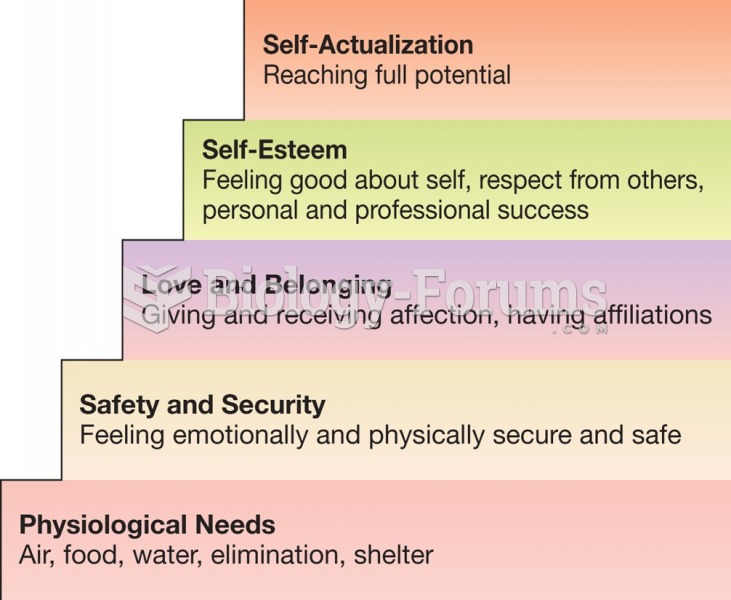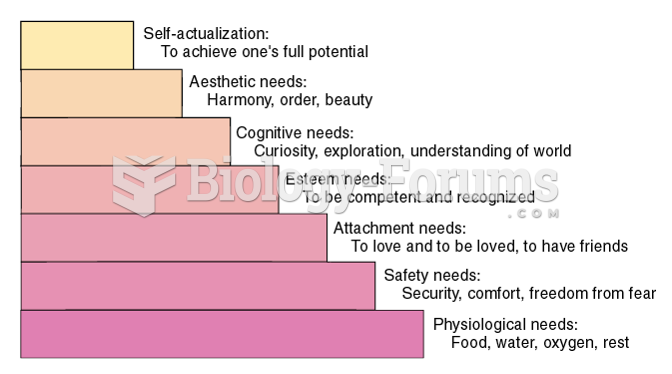|
|
|
There are major differences in the metabolism of morphine and the illegal drug heroin. Morphine mostly produces its CNS effects through m-receptors, and at k- and d-receptors. Heroin has a slight affinity for opiate receptors. Most of its actions are due to metabolism to active metabolites (6-acetylmorphine, morphine, and morphine-6-glucuronide).
Vaccines prevent between 2.5 and 4 million deaths every year.
Patients should never assume they are being given the appropriate drugs. They should make sure they know which drugs are being prescribed, and always double-check that the drugs received match the prescription.
It is difficult to obtain enough calcium without consuming milk or other dairy foods.
More than 150,000 Americans killed by cardiovascular disease are younger than the age of 65 years.







